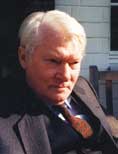
Foreword vii
Translator’s Preface to the Second Edition ix
Abbreviations x
Part I ‘Central Question’ and Theme
1 Max Weber’s ‘Central Question’ 3
1 Max Weber’s ‘Central Question’: The ‘Development of Menschentum’ 7
2 The ‘Anthropological–Characterological’ Principle and the Limits of Empirical Verification 32
2 Max Weber’s Theme: ‘Personality and Life Orders’ 53
1 In Search of the ‘Theme’ 56
2 ‘Personality and Life Orders’ 61
3 Max Weber’s ‘Intellectual Foundation’: Rural labour organisation in East Elbia 65
4 The ‘Viewpoint – Reason of State’ 73
5 The ‘Universal Viewpoint’ in the so-called ‘Special Sociologies’ 79
6 Person and Cause 86
7 Prospect 98
Part II The Biography of the Work
3 ‘A Science of Man’. Max Weber and the Political Economy of the German Historical School 105
1 From Jurisprudence to Political Economy 108
2 Economics as Political Science and as a Science of Man 113
i Economics as a ‘Political Science’ 117
ii Economics as a ‘Science of Man’ 125
iii Karl Knies’ action-oriented political economy 130
iv A reading guide to Karl Knies’ Politische Oekonomie 132
3 On Weber’s New ‘Methodological’ Beginning 141
4 The Traces of Nietzsche in the Work of Max Weber 149
Part III The Unity of the Work
5 Voluntarism and Judgement. Max Weber’s Political Views in the Context of his Work 173
1 Max Weber’s ‘Liberalism’ 174
i Liberalism as ‘Abolition’ 177
ii The Liberal Belief in ‘Time’ 180
iii ‘Progress’ 182
iv ‘Happiness’ 185
v Weber’s ‘Individualism’ 187
vi Security 189
vii The Liberal Achievements 191
viii The Illusory Liberal Peace 192
ix The Last Chance of Freedom 194
2 Max Weber’s ‘Liberalism’ and his ‘Logic of Judgement’ 197
3 Max Weber’s Position in the History of ‘Bourgeois’ Political Thought 205
Appendix: Political Science as a Vocation. A Personal Account 211
Index 237
